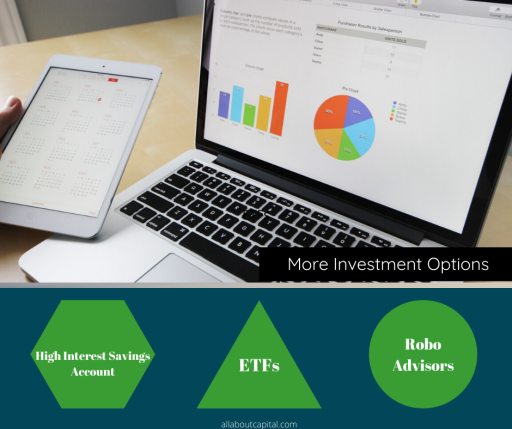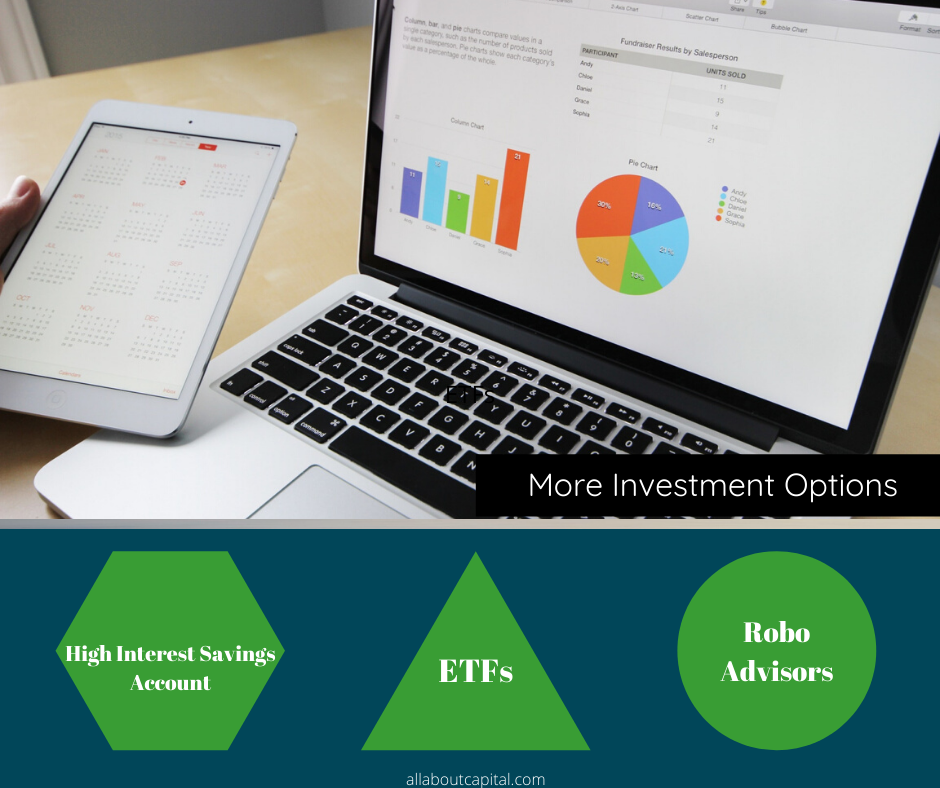Once I finally established my emergency funds, I decided that leaving 6 months’ worth of salary in an account that was earning me minimal returns was not the best investment strategy. So I began researching more investment options to make money from my savings.
High Interest Savings Account
There are dozens of online-only savings banks that provide customers with substantially higher interest rates than regular banks. You certainly won’t get rich by saving your money in these accounts, but you will preserve it by making sure it retains its current day purchasing power.
These accounts tie their interest rates to the Fed Rate. As the Fed rate increases or decreases, the online banks will adjust the interest they pay to keep your money. Those interest payments ensure your money has the same buying power 10 years from now as it does today. These accounts are highly liquid, so you can withdraw your funds at any time should the need arise.
Certificates of Deposit (CD)
CDs are another safe investment choice for your savings. With CDs, you agree to give banks or investment companies a set amount of money for a pre-determined amount of time. In return, they pay you interest on that money once the CD matures (when pre-determined time expires). The longer you agree to let them hold your money, the larger the interest rate they provide.
CD deposits pay slightly more than high interest savings accounts, but they are less liquid. You will be charged an interest penalty for withdrawing your money before it matures. If you think you wont need the funds for a while, this could be a good investment choice for you.
Exchange Traded Funds (ETFs)
If you’re willing to take more risk in exchange for higher returns, an ETF may be a good investment choice. ETFs give you more investment options by allowing you to invest in a variety of investment types. Bonds (government and corporate debt), Industry (specific types of companies), Commodities (gold, oil, natural gas), and Real Estate (known as REITs) are just a few examples.
To purchase an ETF, you will need to open an account with a brokerage company (i.e. Fidelity, Charles Swab, etc..). ETFs are traded like stocks since they are bought and sold on major indexes (Nasdaq, S&P 500). They differ from stocks as you are not buying an individual company, you are purchasing a mixture of assets within the class. This gives you more control over your investments and lowers risk by spreading your money across multiple companies.
Peer to Peer Lending (P2P)
P2P is a relative newcomer to the investment scene. With P2P, a company (ex. Lending Club, Sofi, Prosper) acts as an intermediary between a person seeking a loan, and people willing to fund it. The company is responsible for ensuring the creditworthiness of the customer and determining the terms (length, interest rate) of the loan. The loan is then presented to potential lenders on their platform. The loan is divided into “shares” and the lenders can purchase shares of the loan until it is fully funded. The lender receives dividends in the form of the customers’ monthly loan payment based on the number of shares owned.
Loan customers can get a loan for a lower interest rate than with traditional banks and lenders lower their risk by spreading out their total investment over multiple loans. The lender can also choose loans based on the customers credit rating. The risk to the lender is that these loans tend to be funded without collateral. If the customer defaults on the loan, the lender loses the unpaid portion of his loan share. Lenders must take note of the associated risks before choosing which loan to fund.
Robo Advisors
Another newcomer to the investment scene is the robo advisor. Companies such as Wealthfront and Betterment have created platforms that replace traditional brokerage accounts with those managed by artificial intelligence. The benefit to utilizing AI over a human broker is lower than industry average fees while still supplying full brokerage services.
Robo advisors function similar to actively managed brokerage accounts. They automatically re-balance your portfolio based on your risk tolerance. They also actively purchase and sell funds based on their performance. Some companies also provide an additional service that allows you to talk to a licensed broker if you require more of a human touch.
There are many more investment options to choose from when deciding on where to invest your money. The key is to do your homework, assess your risks, and follow the plan set up by your Financial Advisor.






